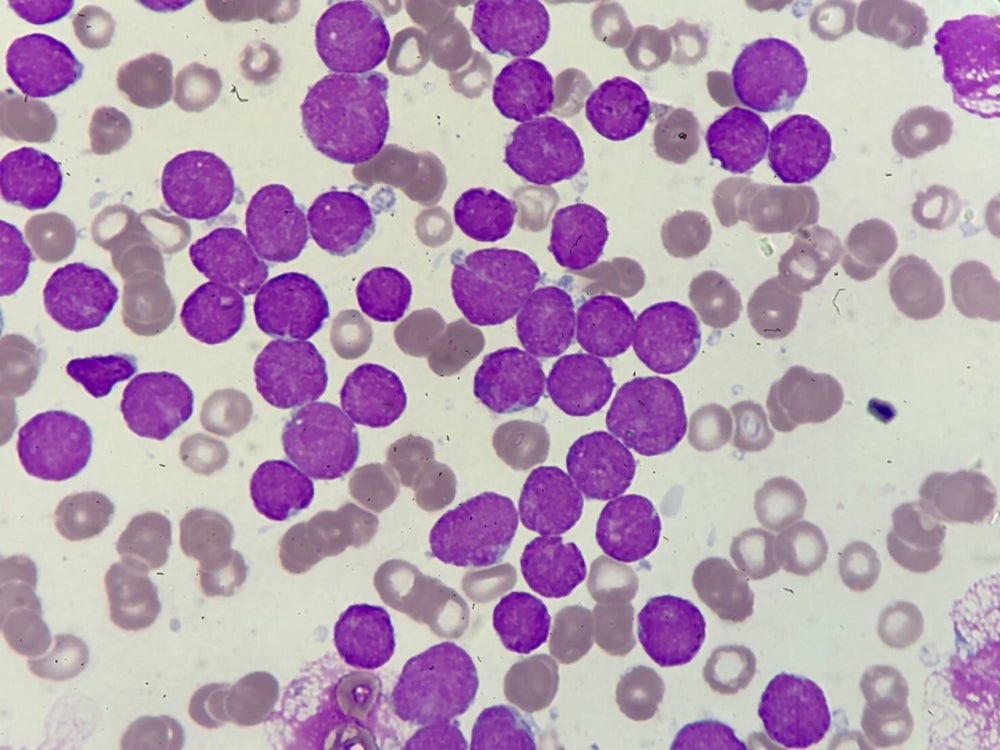
Based on a trial spanning nearly a decade, Amgen has announced that the FDA has approved a supplemental biologics licence application for Blincyto (blinatumomab).
Blincyto is a bispecific T-cell engaged (BiTE) immune-oncology therapy that works by targeting CD19 surface antigens on B cells.
The antibody therapy is used to treat patients with CD19-positive B-cell precursor acute lymphoblastic leukaemia (B-ALL) in first or second complete remission that is minimal residual disease (MRD) positive. MRD-positive patients are those with cancer cells detected in the body, even when in remission.
This latest approval comes off the back of two Phase III studies. Initiated in 2013, before Amgen had submitted Blincyto for any approvals, the ECOG-E1910 study (NCT02003222) compared chemotherapy with and without Blincyto in treating newly diagnosed patients. It showed promising results, with improved relapse-free survival (RFS) and overall survival (OS). Median OS was not reached in patients receiving Blincyto, versus 71.4 months in the chemotherapy arm.
Another study, the AALL1331 trial (NCT02101853) focused on paediatric patients. In this instance, OS was 71.3%, compared to 58.4% with standard chemotherapy.
The treatment was granted accelerated approval by the FDA in 2018, off the back of positive data gathered in the single-arm BLAST trial (NCT01207388). In this study, 81% of patients achieved undetectable MRD with the treatment. The trial also demonstrated an 18-month RFS rate of 56% and an estimated median RFS of nearly two years.
With these results, Amgen believes that Blincyto has been reinforced as a standard of care for patients with MRD. Amgen research and development executive vice-president Dr David Reese said: “Today’s full approval underscores the clinical benefit of Blincyto for people living with B-ALL, and we look forward to exploring how we can continue to make a significant impact for these patients.”
The company plans to continue what it calls a “robust development programme” for Blincyto. This includes trials in MRD-negative B-ALL patients designed to minimise chemotherapy and clinical investigation of a subcutaneous formulation.
